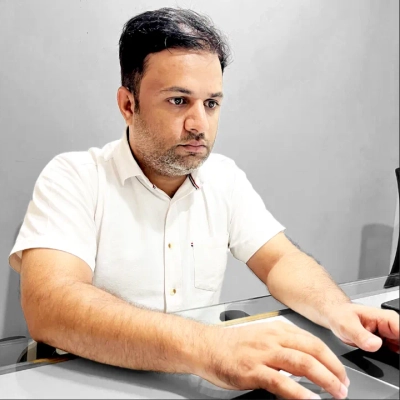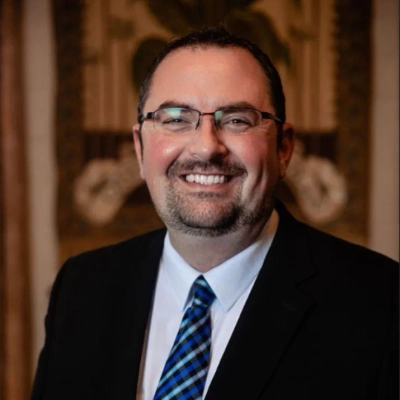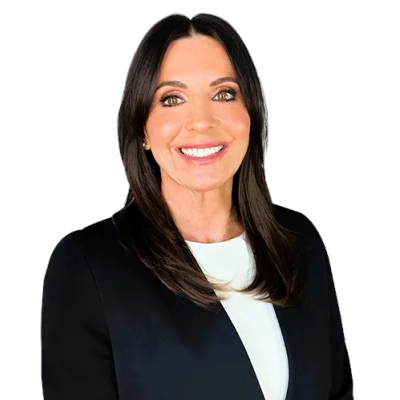19 Ways to Maintain Financial Focus During Major Life Transitions
Major life transitions can disrupt financial stability, but implementing strategic approaches can help maintain focus during these challenging periods. Financial experts recommend practical steps such as evaluating your financial picture, creating resilient systems, and separating emotions from decision-making. This comprehensive guide outlines nineteen actionable strategies to help safeguard your financial wellbeing while navigating significant life changes.
Pause and Evaluate Your Financial Picture
When I experienced a major life transition, I took a pause and looked over my entire financial picture clearly before making any changes or planning realignments. I considered all related factors, like income, expenses, debt and goals. I suggest this type of 'financial check-up' following large events such as career changes or family changes. Following the initial evaluation, I then tweaked my objectives... Rather than promoting the same deadline, I extended a few and zeroed in on obtaining the essential ones. Creating a stronger cash-reserve, maintaining debt in check and safeguarding my long-term retirement plan.
I'll give one piece of advice here: you should select one little anchor habit—like putting a fixed amount of money into savings every month. Let that habit remain constant even as everything else in your life is changing. That stability provides you a solid foundation while the other parts of your life reorganize.

Build a Foundation With Professional Guidance
When I went through a major life transition, I had to pause and rethink my financial goals. I reached out to a financial advisor and laid everything on the table. We talked through what was changing in my life and how that affected my priorities. Instead of chasing long-term goals right away, we focused on building a strong foundation, things like creating a safety net, adjusting my budget, and setting realistic short-term targets.
One piece of advice I always give is to talk to someone who understands money and emotions. A good financial advisor will not just crunch numbers. They will help you stay grounded and focused when everything else feels uncertain. Having a plan, even a simple one, can give you peace of mind and help you make smart choices during tough times.

Create Systems That Survive Financial Chaos
Every change takes time, whether it is about a life transition. So, I decide to quit my reliable job and switch to freelancing full-time. During this phase, my finances went like a high-speed comedy show. I was sure to adapt the strategy of stability and structure, but my income looked like a cardiogram for someone in distress. I had to stop pretending consistency was coming back and instead build a system that could survive chaos. I made a larger emergency fund, separated my accounts, and started tracking cash flow weekly like a slightly paranoid accountant. It wasn't elegant, but it worked.
Try your best to stay financially focused when your life goes off the rails. Treat clarity as your currency. You don't need to have everything together. You just need to know what's actually happening with your money. Numbers are brutally honest friends. They won't comfort you, but at least they won't lie while you panic into your spreadsheet.

Leverage Relationships to Build Business Stability
I started a global branding and digital marketing firm 24 years ago. I did not plan on starting a company I always wanted to go work for a large multi-national business and be a Fortune 500 CEO. When I was a student I looked at leaders like Meg Whitman & Ursula Burns as my role models. I started my career on Wall Street in the 80s and had a successful career in Corporate America at companies like Procter & Gamble and Coca-Cola and worked at 3 different tech startups as the head of marketing, all had positive exits. I became an entrepreneur and took the leap right after 9/11 when the company I worked for cut their marketing. I had nothing to lose. My definition of success has changed a lot as an entrepreneur, instead of looking at finish lines like #s/job titles/houses/cars/level of public profile I factor in things like whether I get to do work that at least sometimes lets me feel like I made a genuine difference in the lives of other people.
I am just trying to leave the world better than I found it and be remembered by the people whose lives I touched as a force for good in their lives. I learned firsthand no one on their deathbed wishes they worked more/made more money/won more awards. They just want to be with the ones they love most to tell them they mattered. I want to be remembered for passing along the very best in me to others so their lives are better and happier in some way because I was part of it.
When I left my corporate position to start my own business, I had to completely realign my financial goals to account for the initial uncertainty of entrepreneurship. I focused on leveraging my existing professional relationships and prior experience to create a stable foundation for my new venture rather than expecting immediate returns. My advice for maintaining financial focus during major life changes is to view your past experiences as valuable training that prepares you for new opportunities rather than obstacles. Having confidence in your ability to succeed is crucial, I never considered failure as an option, which helped me stay committed to my financial plan even during challenging periods.

Separate Emotions From Financial Decision Making
When I first took over as president of Miller Pest & Termite, my financial goals shifted from personal stability to long-term sustainability. I went from thinking about my own paycheck to making sure dozens of families could rely on theirs. During that transition, I learned to separate emotion from decision-making—especially when expenses got tight or unexpected costs hit. I built a six-month cash buffer for payroll and operations before pursuing any major growth moves. That cushion gave us room to breathe and make smart, not reactive, choices.
My best advice during any major life or career change is to focus on controllables. You can't predict the timing of new opportunities or setbacks, but you can control your spending, save consistently, and make small, steady progress. Even when life feels chaotic, those simple habits are what keep you grounded and moving forward.

Balance Growth and Grounding During Transitions
During a major life transition, I shifted my financial goals from expansion to stability. Instead of focusing on scaling or taking on new ventures, I concentrated on strengthening existing systems and ensuring that every investment served a clear, sustainable purpose. It required patience and a willingness to pause ambition long enough to create space for clarity. That balance between growth and grounding made all the difference.
My advice for maintaining financial focus during upheaval is to separate emotion from structure. When circumstances change, the instinct is to react quickly, but financial clarity comes from observation before action. Reassess what truly matters, review commitments through the lens of long-term security, and permit yourself to prioritize steadiness over speed. Progress built on calm intention always outlasts progress built on urgency.

Establish Clear Financial Guardrails Before Change
When I transitioned from my secure role as a Senior Product Manager to launching my own fractional product management service, I had to completely recalibrate my financial expectations and planning. I established a six-month runway of savings before making the leap and set tiered income goals for my first year of operation. My biggest adjustment was shifting from a predictable salary to variable income, which required creating more robust tracking systems and maintaining stricter spending discipline than I had needed previously. Throughout this career transition, I found that breaking down larger financial goals into smaller, achievable milestones helped maintain momentum even when client acquisition was uneven. If I could offer one piece of advice, it would be to create financial guardrails before entering any major transition - specific thresholds that trigger action plans so your decision-making remains strategic rather than reactive when facing uncertainty.

Implement Cash Flow Triage During Crisis
Adjusting financial goals during a major life transition, such as a major family illness, required immediately shifting focus from abstract growth to preserving the structural integrity of our financial foundation. The conflict was the trade-off: pursuing investments (growth) versus liquidating assets to cover immediate, unpredictable expenses (stability). This massive structural failure in planning demanded a ruthless re-prioritization.
I adjusted by enacting a Hands-on "Cash Flow Triage". All investment goals were immediately frozen. We classified all expenses into three categories: Structural (Non-Negotiable)—health, housing, and food; Contingent (Necessary but Deferrable)—scheduled maintenance for heavy duty equipment; and Aesthetic (Eliminate)—all non-essential spending. We consciously made the necessary trade-off of halting all long-term savings to ensure the structural components were fully funded and secured against the unexpected load. This stabilized our financial perimeter.
One piece of advice for maintaining financial focus during personal upheaval is to establish a "No-Drift Cash Log". This practice dictates that the single structural goal is verifiable knowledge of where every dollar is going. Daily, the affected party must spend five minutes logging and classifying every expenditure. This is a disciplined, hands-on activity that converts the abstract financial chaos into a clear, measurable problem that can be managed. The best way to maintain financial focus is to be a person who is committed to a simple, hands-on solution that prioritizes verifiable structural clarity over complex financial growth.
Treat Cash Flow Like a Harvest Cycle
When I transitioned from salaried employment to independent work, my financial goals shifted from accumulation to stability. Predictable paychecks disappeared, replaced by fluctuating income that demanded a new rhythm of saving and spending. I began treating cash flow like a harvest cycle—some months abundant, others lean—and structured goals around sustainability rather than growth. The most practical change was creating a "quiet month fund," equal to one full cycle of average expenses, that buffered slow periods without panic or debt. My advice is to anchor financial focus to habits, not outcomes. Tracking daily spending, reviewing invoices weekly, and scheduling monthly reflections turned uncertainty into awareness. During upheaval, clarity matters more than control. Much like the brewing process at Equipoise, where timing and balance define the result, financial steadiness comes from respecting each stage—earning, saving, resting—without rushing the next.

Revisit Numbers Honestly as Life Changes
When my family grew and I became a parent, my financial priorities shifted overnight. Before that, I was comfortable taking more risks with business investments, but once I had a child, security moved to the top of the list. I started setting aside a larger emergency fund and scaled back on nonessential business expenses. That adjustment gave me peace of mind and helped me make decisions more confidently, knowing I had a cushion in place for whatever came next.
My advice for anyone navigating a major life change is to revisit your numbers with honesty. Don't assume what worked before still fits your new reality. Look at your income, savings, and expenses through the lens of your current responsibilities. Then, build flexibility into your budget so you can adapt instead of react. Financial focus isn't about having everything perfectly planned—it's about staying aware and adjusting with intention.

Trade Perfection for Consistent Progress
When I left a steady job to start Magic Pest Control, I had to rethink what financial success looked like completely. I went from tracking a predictable paycheck to managing cash flow, payroll, and marketing costs all at once. Instead of setting big revenue targets right away, I shifted to smaller, weekly goals—like covering expenses plus a set growth margin. Hitting those short-term milestones kept me focused and calm during what could've been a very stressful time.
My advice is to trade perfection for progress when life changes. Big financial goals can feel impossible when everything's shifting, but breaking them into realistic, trackable steps helps you stay in control. It's not about how much you can do at once—it's about staying consistent until stability comes back.

Protect Stability Before Pursuing Growth
During a family medical emergency, long-term investment plans had to pause so liquid savings could cover care and time away from work. The adjustment wasn't about abandoning goals but reordering priorities. Instead of viewing the shift as a setback, we treated it as risk management—protecting stability before pursuing growth. That mindset aligns closely with how healthcare logistics operate: essential resources must remain available before expansion makes sense. The key to maintaining financial focus during upheaval is separating emotion from structure. Establish automatic transfers, even if smaller, so momentum continues quietly in the background. Predictable systems reduce stress when circumstances feel unpredictable. Stability, not speed, becomes the metric of success, allowing financial recovery to mirror clinical recovery—steady, deliberate, and grounded in care for the essentials first.

Focus on Liquidity Not Just Revenue
When our agency shifted from remote freelancing to a physical office, personal finances and business expenses collided in ways that blurred every boundary. The move demanded upfront costs—equipment, deposits, local permits—that exceeded early projections by nearly 30%. To stay grounded, we shifted from revenue-based goals to liquidity-based ones, focusing on cash reserves rather than top-line growth. That single pivot kept the business solvent through an uncertain first quarter and prevented short-term gains from masking long-term strain.
The best advice during upheaval is to separate emotion from forecasting. Major transitions—whether relocation, marriage, or health challenges—distort perception of risk. Tracking liquidity ratios weekly and anchoring decisions to cash flow rather than projected income builds clarity when everything else feels unstable. Financial focus is less about ambition during those moments and more about preserving the ability to choose your next step without panic.

Let Your Financial Goals Breathe
When my family faced a major transition, I stopped treating financial goals as fixed milestones and started viewing them as living plans. Instead of forcing our budget to match old expectations, we recalibrated priorities around stability and stewardship. The shift meant pausing larger ambitions—like home renovations or travel—and focusing instead on liquidity and debt reduction. Having a clear hierarchy of needs gave structure when emotions ran high. The key was to keep gratitude and prudence in conversation. Every financial decision, no matter how small, became an act of trust rather than control. My advice for anyone in upheaval is simple: let your goals breathe. A flexible plan honors both faith and reality. It's less about staying rigidly on track and more about keeping peace with what truly sustains you when everything else is uncertain.

Secure Your Three Non-Negotiable Costs First
Adjusting financial goals during a major life transition is the personal equivalent of conducting a high-stakes financial triage to maintain the stability of a heavy duty trucks operation during a sudden external crisis. You secure your personal assets by enforcing professional discipline.
The core adjustment I made was pivoting from growth-focused investing to absolute, non-negotiable liquidity. I stopped funding all speculative market investments and focused entirely on increasing the cash reserves dedicated to operational survival. The sudden life transition was treated as a guaranteed, immediate system failure that required maximum cash on hand to mitigate. The primary goal shifted from making profit to insulating the core financial foundation from external compromise.
The single piece of advice for maintaining financial focus during personal upheaval is to ring-fence the three non-negotiable costs of survival. You must immediately identify and fully fund the single most critical asset in your personal economy—housing, essential insurance, and a six-month reserve of easily accessible, non-liquidated capital. This reserve should be treated with the same rigor we use to stock high-value OEM Cummins Turbocharger assemblies. Once those non-abstract, critical needs are secured, you freeze all other financial movement.
This approach works because it forces the mind to prioritize the verifiable, physical necessities over abstract financial worries. By ensuring that the single most critical assets are safe and accessible, the individual regains control and eliminates the paralyzing stress of financial ambiguity. The ultimate lesson is: You maintain financial focus by enforcing a disciplined, zero-tolerance protocol for the protection of your personal operational assets.

Treat Windfalls as Extended Financial Runway
My transition was going from a W-2 Employee with bonuses or commissions for my entire career to being self-employed. The transition was abrupt as my prior firm closed quickly, and the decision to go independent, while I was preparing for it, was made equally quickly. The industry I'm in has a very 'lumpy' cash flow. The advice I received, and that served me well, was to look at windfalls as extending my runway. That means I'm allocating for reinvestment and reserves before distributing for my household needs.

Plan Ahead With Practical Step-By-Step Approach
During a major life transition, the first step I take is evaluating my current financial needs and forecasting what I will require in the coming years to maintain a stable and improved lifestyle. If I'm considering a career switch, I set a realistic target salary that aligns with my future goals. If the transition involves starting a new business, I calculate the capital required to sustain myself during the early, unpredictable stages. By securing these essentials first—whether it's savings, income continuity, or a clear budget—I reduce uncertainty and feel more confident moving forward.
My biggest advice for maintaining financial focus during personal upheaval is to always plan ahead with practicality. Identify your essentials, create a buffer, and move step-by-step rather than reacting emotionally. Stability begins with clarity, and when you know your financial foundation is secure, navigating change becomes far less stressful and much more strategic.

Create a Financial Plan During Transition
During any major life transition, whether it is divorce, career change, inheritance, or loss, one of the most most stabilizing steps you can take is to create or revisit your financial plan that you can create with a certified financial planner at most financial institutions. Many times it is part of what they offer so you will not incur additional fees for this. A comprehensive plan isn't just for the ultra-wealthy, it's for anyone who wants clarity and control. Working with a fiduciary, certified financial planner allows you to model different outcomes, adjust assumptions, and make confident decisions while emotions are running high. My advice: don't wait until things 'settle down' to get organized. Building a plan is how you keep control.

Prioritize Stability Over Speed When Moving
When I went through a major life transition: moving countries while expanding Ezra Made, I had to rethink my entire financial framework. What used to be predictable suddenly wasn't: currencies fluctuated, expenses shifted, and timelines stretched. My instinct was to push harder to maintain growth targets, but I quickly realized that during upheaval, stability matters more than speed. So I scaled back my goals, focusing on cash flow and liquidity instead of aggressive expansion.
That adjustment didn't feel like slowing down, it felt like recalibrating. I built in more flexibility, treating short-term uncertainty as part of the plan, not a failure of it. The biggest lesson was that financial focus isn't about clinging to old numbers, it's about adapting priorities without abandoning purpose.
My advice: during transitions, redefine success. Progress doesn't always mean forward motion; sometimes it means holding steady while you rebuild your footing. Clarity first, growth second; that's how you stay solvent and sane.



